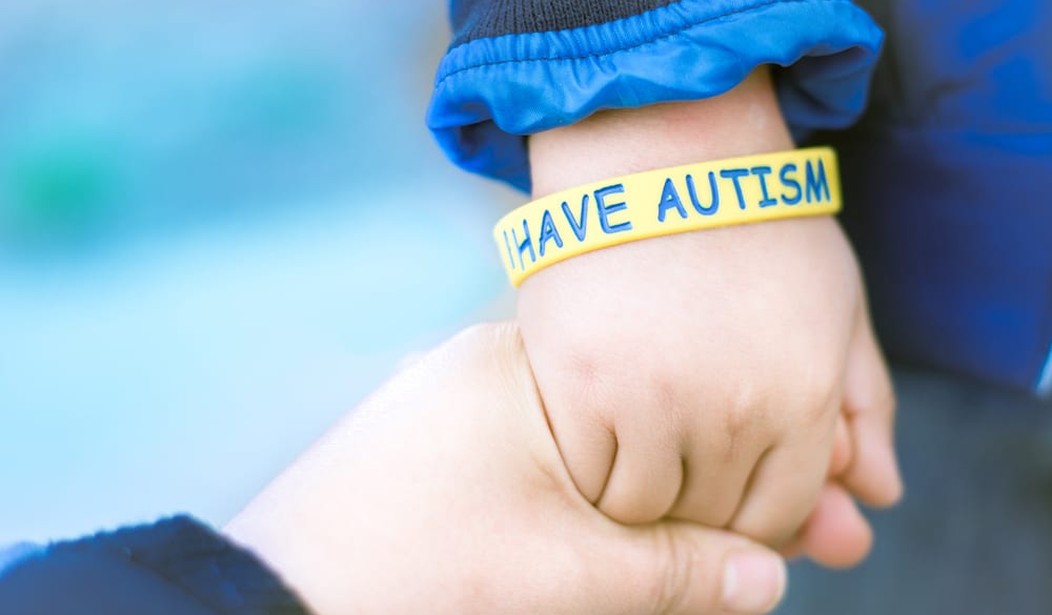Medical researchers in California think they may have found a drug that can treat the symptoms of autism spectrum disorder (ASD) in children. A small clinical trial at the University of California San Diego School of Medicine showed that a 100-year-old drug called suramin can measurably improve the symptoms of ASD, which an estimated 1 in 160 children has worldwide. The trial found that a single intravenous dose of suramin produced impressive improvements in five boys with ASD.
Autism is the fastest-growing developmental disability in the United States. The discovery of this promising drug could prove to be a turning point in the battle to treat the debilitating disorder.
Via Science Alert:
Robert Naviaux from the University of California San Diego School of Medicine thinks that autism symptoms could be driven by a metabolic dysfunction, causing a breakdown in the communication between the brain, gut, and the immune system at the cellular level.
He attributes this dysfunction to the ‘cell danger response’ hypothesis, stating that the normal cellular response to injury or stress can sometimes “get stuck”, and cause abnormal behaviour that leads to chronic disease.
“When this happens during early child development, it causes autism and many other chronic childhood disorders,” says Naviaux.
This abnormal cell danger response could be maintained through purinergic signalling – the cell communication process that involves molecules like adenosine and ATP.
To test this hypothesis, Naviaux and his team turned to the drug suramin, which is a known ‘antipurinergic’ – a molecule that can inhibit purinergic signalling.
Suramin has been around since 1916, and is used in the treatment of the parasitic disease African trypanosomiasis (sleeping sickness).
The first promising results came in pre-clinical mouse studies, when the researchers successfully reversed autism-like symptoms with a single dose of the drug. These studies paved the way to the first human trial, and the results are now in.
This pilot study was double-blinded and placebo-controlled, and involved 10 boys with diagnosed ASD aged 5-14 years, each of whom received a single dose of either suramin or a placebo.
All five boys who received the drug showed a steady improvement of symptoms within just seven days, while the placebo group showed no change at all.
The boys were matched into pairs by age, IQ, and autism severity, which means that each participant receiving the drug could be compared to a very similar participant who got a placebo.
Even though there’s huge variation between individuals, people on the autism spectrum share a core set of features – difficulties with social interactions and communication, and repetitive, restricted behaviours and interests.
The researchers used standardised assessments to measure these core features before, during, and after the treatment. Additionally, the parents (who did not know whether their child received the drug or not) also reported improvements in behaviour, language, developmental goals, and social interactions.
This included some truly astonishing changes in two of the four non-verbal participants.
“The 6- and 14-year-old who received suramin said their first sentence of their lives about one week after the single suramin infusion,” says Naviaux.
“This did not happen in any of the children given placebo.”
After completion of the study, the drug gradually left the children’s systems and their severe symptoms returned, unfortunately.
As promising as the drug is, researchers are cautioning people about experimenting with suramin at home. It has not been approved for any therapeutic use in the United States and can be dangerous if given in the wrong doses.
Suramin is not approved for the treatment of autism. Like many intravenous drugs, when administered improperly by untrained personnel, at the wrong dose and schedule, without careful measurement of drug levels and monitoring for toxicity, suramin can cause harm.
Careful clinical trials will be needed over several years at several sites to learn how to use low-dose suramin safely in autism, and to identify drug-drug interactions and rare side effects that cannot currently be predicted. We strongly caution against the unauthorised use of suramin.
Larger studies are required in order for the drug to pass muster for FDA approval, Naviaux says.
“After summarising the design and results of the study, we are left with the conclusion that either the results are wrong because of the small size of the study, or they are an important advance,” says Naviaux.
“We won’t know which until the results can be replicated in larger studies.”
That day can’t come soon enough for the children’s parents.
The mothers of two boys who received suramin in the trial were featured in the video below put out by UC San Diego.
One of the moms noticed a difference in her son’s behavior at the dinner table. After dinner, the boy said, “I’m done with dinner,” when normally he would say, “I did it!” in a high-pitched voice.
“You have to be a parent to understand the importance of the word ‘dinner,'” she said. “That there’s an understanding there that can get out.”









Join the conversation as a VIP Member